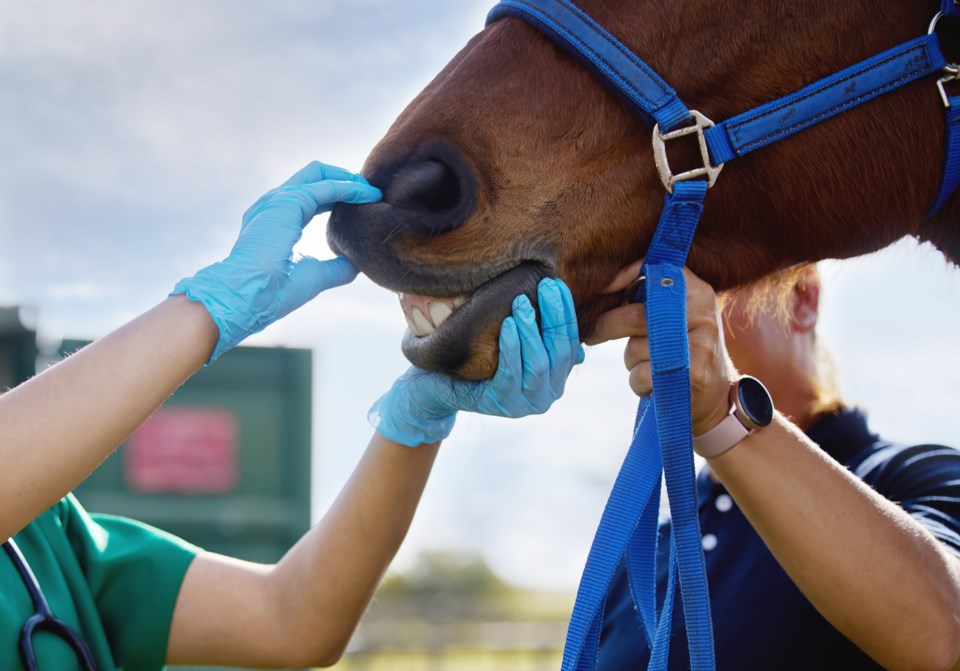THUNDER BAY — A rural Thunder Bay-area resident whose two horses were removed by the provincial Animal Welfare Services agency has failed to persuade a tribunal to return them to his care.
The man owns a mare and a stallion that a veterinarian determined to be in distress due to their poor body conditions and lack of available food and potable water.
In August and September 2024, following a complaint from the public, an AWS inspector twice attempted to visit the property to check on the horses, but was refused access.
After returning with a search warrant, the inspector identified multiple concerns.
According to the Animal Care Review Board, "She observed the mare and the stallion in an emaciated state with their spines, rib, and hip bones visible. She further testified that upon walking around the property, she was unable to locate any clean drinking water. She did observe a trough with thick, green liquid on the bottom, and there was only one round bale of hay available for the horses. The property also had random objects scattered throughout, including hazardous materials such as barbed wire, metal scraps, broken-down vehicles, and other sharp objects, which could injure the horses."
The inspector then issued orders requiring the owner to have both horses examined by a veterinarian, follow the vet's recommended feeding plan, and provide them with adequate water, access to a salt block, enclosed areas to remove the risk of injury, grooming to remove burrs, and access to shelter during bad weather.
About a week later, AWS returned to check on compliance with the orders, accompanied by a vet, and found the necessary steps to rectify the condition of the horses had not been taken.
The vet gave both animals' body condition a low score (1-2 out of 9), stating "it was clear that the basic requirements for feed and water were not being met. The extremely thin body condition of the horses indicated that lack of feed and water had been a long-term problem and would not change in the future."
After the horses were transferred by AWS to a boarding facility, they received veterinary care and were observed in the following weeks to be eating well, with their body conditions improving steadily.
But the animals' owner felt Animal Welfare Services had overstepped its bounds.
In his appeal to the Animal Care Review Board, heard in December, he "seemed to disagree that the horses were in distress at all," the adjudicator wrote in her decision.
She said that although he insisted he could care for the horses himself, without veterinary support, and insisted he had provided adequate food and water, this was "not in line with the evidence presented at the hearing."
The adjudicator ruled "The appellant has not proven on a balance of probabilities that he could provide the care and conditions required to ensure the horses would not be in distress if returned to the property."
She also ordered that he pay the government nearly $1,600 to cover boarding and vet costs.
The tribunal's decision, released on Feb. 5, does not indicate where the horses are at present.
